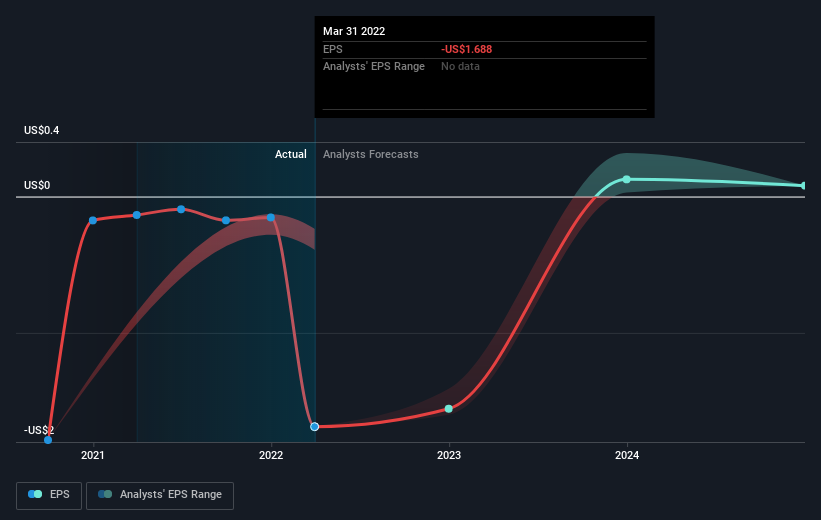Loss-Making Paysafe Limited (NYSE:PSFE) Expected To Breakeven In The Medium-Term
We feel now is a pretty good time to analyse Paysafe Limited's (NYSE:PSFE) business as it appears the company may be on the cusp of a considerable accomplishment. Paysafe Limited provides digital commerce solutions to online businesses, small and medium-sized business merchants, and consumers through its Paysafe Network worldwide. The US$2.0b market-cap company posted a loss in its most recent financial year of US$111m and a latest trailing-twelve-month loss of US$1.2b leading to an even wider gap between loss and breakeven. The most pressing concern for investors is Paysafe's path to profitability – when will it breakeven? We've put together a brief outline of industry analyst expectations for the company, its year of breakeven and its implied growth rate.
Check out our latest analysis for Paysafe
According to the 9 industry analysts covering Paysafe, the consensus is that breakeven is near. They expect the company to post a final loss in 2022, before turning a profit of US$92m in 2023. So, the company is predicted to breakeven just over a year from now. In order to meet this breakeven date, we calculated the rate at which the company must grow year-on-year. It turns out an average annual growth rate of 122% is expected, which is extremely buoyant. Should the business grow at a slower rate, it will become profitable at a later date than expected.
We're not going to go through company-specific developments for Paysafe given that this is a high-level summary, but, take into account that typically a high growth rate is not out of the ordinary, particularly when a company is in a period of investment.
Before we wrap up, there’s one issue worth mentioning. Paysafe currently has a debt-to-equity ratio of 174%. Typically, debt shouldn’t exceed 40% of your equity, which in this case, the company has significantly overshot. A higher level of debt requires more stringent capital management which increases the risk around investing in the loss-making company.
Next Steps:
There are key fundamentals of Paysafe which are not covered in this article, but we must stress again that this is merely a basic overview. For a more comprehensive look at Paysafe, take a look at Paysafe's company page on Simply Wall St. We've also put together a list of relevant aspects you should look at:
Valuation: What is Paysafe worth today? Has the future growth potential already been factored into the price? The intrinsic value infographic in our free research report helps visualize whether Paysafe is currently mispriced by the market.
Management Team: An experienced management team on the helm increases our confidence in the business – take a look at who sits on Paysafe’s board and the CEO’s background.
Other High-Performing Stocks: Are there other stocks that provide better prospects with proven track records? Explore our free list of these great stocks here.
Have feedback on this article? Concerned about the content? Get in touch with us directly. Alternatively, email editorial-team (at) simplywallst.com.
This article by Simply Wall St is general in nature. We provide commentary based on historical data and analyst forecasts only using an unbiased methodology and our articles are not intended to be financial advice. It does not constitute a recommendation to buy or sell any stock, and does not take account of your objectives, or your financial situation. We aim to bring you long-term focused analysis driven by fundamental data. Note that our analysis may not factor in the latest price-sensitive company announcements or qualitative material. Simply Wall St has no position in any stocks mentioned.

 Yahoo Finance
Yahoo Finance 
